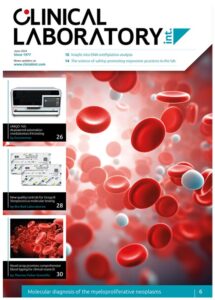Still sceptical about the benefits of prophylactic statins?
In spite of the many advances in medical science that have resulted in a steady reduction in deaths from cardiovascular disease in most European countries, CVD remains the leading cause of mortality in Europe. Without appropriate interventions, the effects of an ageing population, together with the increasing prevalence of obesity and Type 2 diabetes, can only exacerbate the situation. Modifiable risk factors have of course been elucidated: tobacco use, a diet high in salt and sugar, excessive alcohol consumption, and a paucity of physical exercise. It is also known that statins, which reduce Low-Density-Lipoprotein cholesterol levels, are an effective prophylactic for people at risk of CVD.
However two and a half years ago the updating of the UK’s National Institute for Health and Clinical Excellence (NICE) advice to physicians on when to prescribe statins resulted in an outcry. NICE was now recommending that statin therapy should be prescribed for patients with an assessed risk of 10% of developing CVD within 10 years, whereas previous guidelines had stated a 20% risk. Incidentally the American Heart Association and American College of Cardiologists advocate prescribing prophylactic statins when the risk within 10 years is as low as 7.5%. An article and an open letter were soon published in The British Medical Journal urging NICE to rethink the advice that would result in 4.5 million more fundamentally healthy people becoming eligible to take statins. The authors claimed that the risk of side-effects from the medication would outweigh the benefits. Data from clinical trials involving over 8 000 subjects showed that new cases of diabetes were significantly higher in people taking statins than in those taking placebo. A longitudinal study of over 3 000 older men had also reported that subjects prescribed statins took significantly lower levels of physical exercise, due to either the side effects of muscle pain or to fatigue. The UK mass media fanned the flames, erroneously reporting that statins caused debilitating side-effects in 20% of patients. The impact of this media coverage was soon apparent: 200 000 people stopped taking statins, up to 6 000 of whom could be expected to suffer from an avoidable cardiovascular event within the decade.
A review in the Lancet published in September has now scrutinized and carefully interpreted the evidence available from randomized controlled clinical trials.It underlined the fact that CVD morbidity and mortality is effectively reduced by taking prophylactic statins and that side-effects are rare. Hopefully this information will be accurately disseminated by the popular press.



